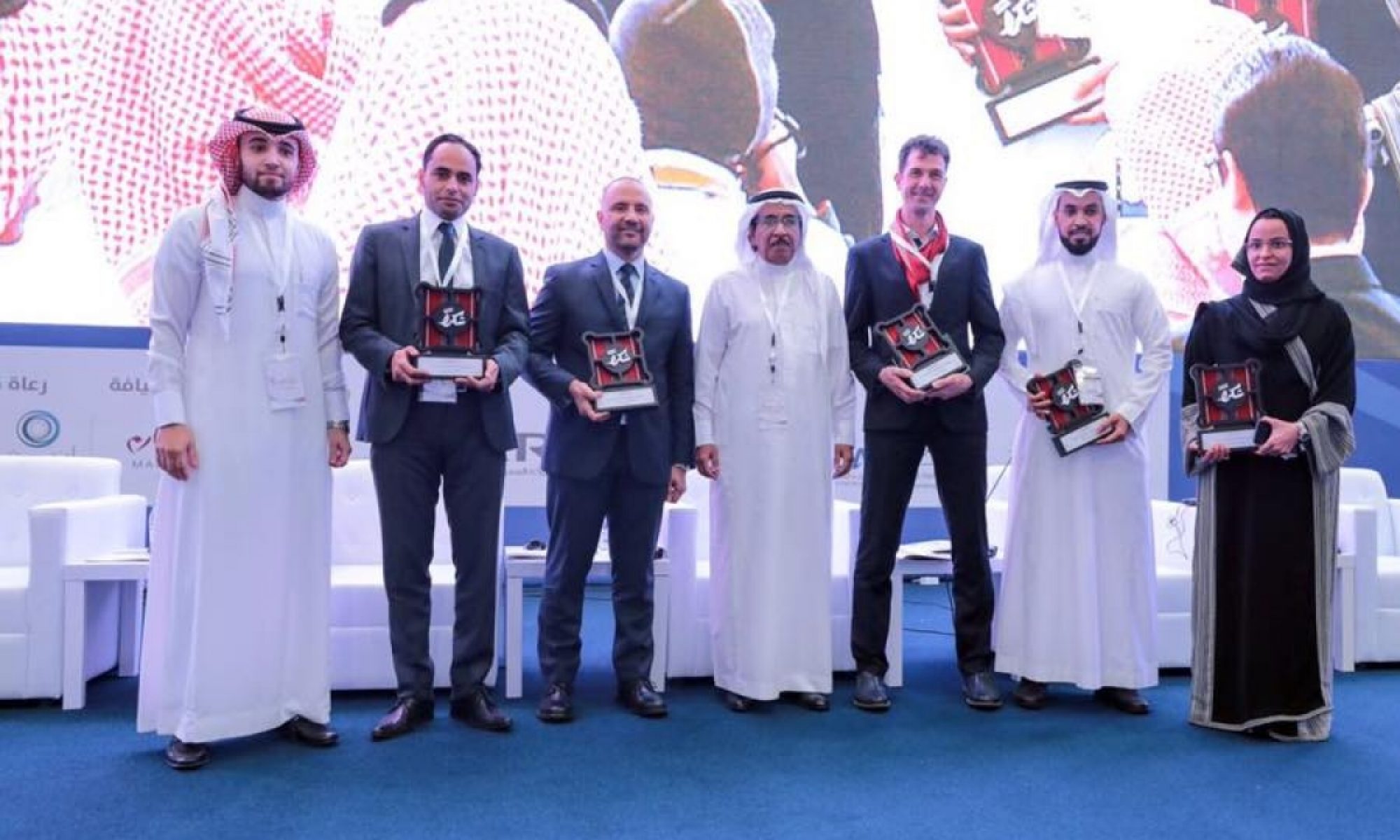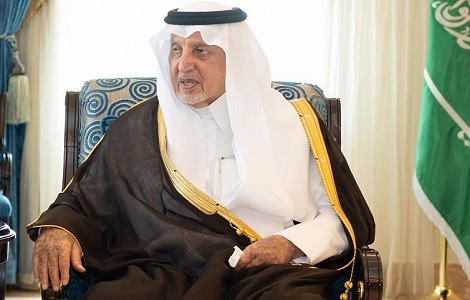
In the annals of Saudi Arabian history, King Khalid bin Abdulaziz Al Saud stands as a stalwart figure whose reign from 1975 to 1982 left an indelible mark on the Kingdom. Often referred to as “The Stabilizer,” King Khalid’s leadership was characterized by a steadfast commitment to fostering stability, consolidating economic growth, and reinforcing the foundations of a burgeoning nation. This blog seeks to delve into the life, accomplishments, and enduring legacy of King Khalid, illuminating the pivotal role he played during a crucial era of Saudi Arabia’s development.
Ascension to the Throne:
Born in 1913, King Khalid assumed the throne following the assassination of his half-brother, King Faisal, in 1975. His ascension marked a period of continuity and a commitment to furthering the progress initiated by his predecessors.
Economic Stability and Infrastructure Development
King Khalid’s reign witnessed a focus on economic stability and the continuation of ambitious infrastructure projects. Under his leadership, Saudi Arabia experienced sustained economic growth, with the establishment of key infrastructure such as the King Khalid International Airport and advancements in telecommunications networks.
Fiscal Policies and Financial Management:
King Khalid implemented prudent fiscal policies aimed at managing the Kingdom’s finances effectively. His administration focused on diversifying revenue sources, ensuring the responsible utilization of oil revenues, and strengthening the economic foundations to withstand external shocks.
Social Welfare Initiatives:
The commitment to the well-being of Saudi citizens was a hallmark of King Khalid’s rule. He emphasized social welfare initiatives, including the expansion of healthcare services and housing programs, contributing to an improved quality of life for the Saudi population.
Continued Educational Advancements:
Building on the educational reforms initiated by King Faisal, King Khalid continued to advance the Kingdom’s educational landscape. His administration invested in expanding educational institutions, fostering a growing knowledge-based society that would become pivotal for future generations.
Diplomatic Engagement and Regional Stability:
King Khalid navigated regional and international affairs with a focus on maintaining stability in the Middle East. His diplomatic efforts contributed to regional cooperation and stability, reinforcing Saudi Arabia’s role as a key player in the Arab world.
Legacy of Leadership and Abdication:
King Khalid’s legacy lies not only in the economic and social advancements achieved during his reign but also in his recognition of the need for a smooth transition of power. His abdication in 1982 paved the way for the next generation of leaders, including his half-brother King Fahd, ensuring a seamless continuation of Saudi Arabia’s development.
The King Khalid Foundation:
Established in his honor, the King Khalid Foundation stands as a testament to his commitment to social development. The foundation continues to play a crucial role in philanthropy, social initiatives, and community development, reflecting King Khalid’s enduring legacy.
King Khalid bin Abdulaziz Al Saud’s legacy as “The Stabilizer” is one of foresight, stability, and sustained progress. His leadership during a critical period in Saudi Arabia’s history laid the groundwork for the Kingdom’s continued development. As Saudi Arabia navigates the complexities of the 21st century, the echoes of King Khalid’s prudent governance and commitment to stability remain ingrained in the nation’s identity, serving as a beacon for future leaders and generations to come.
King Khalid bin Abdulaziz Al Saud: Architect of Economic Resilience and Social Progress in Saudi Arabia
Economic Diversification and Industrial Projects:
King Khalid’s reign saw a strategic focus on economic diversification beyond oil. Industrial projects, such as petrochemical and mining ventures, were initiated to reduce the Kingdom’s reliance on oil exports. These efforts laid the groundwork for a more diversified and resilient economy in subsequent decades.
Urban Development and Housing Programs:
Addressing the burgeoning urbanization, King Khalid implemented extensive urban development projects and housing programs. The creation of new cities and the expansion of existing ones aimed to accommodate the growing population and enhance living standards for Saudi citizens.
Rural Development Initiatives:
Recognizing the importance of balanced development, King Khalid directed attention to rural areas. Initiatives were launched to improve infrastructure, agricultural practices, and access to essential services in rural communities, fostering a more equitable distribution of development across the Kingdom.
Technological Advancements:
King Khalid’s era witnessed a push for technological advancements, with a focus on modernizing various sectors. Efforts were made to integrate technology into government services, healthcare, and education, contributing to the Kingdom’s technological progress.
Cultural Preservation and Heritage Conservation:
While embracing modernization, King Khalid also emphasized the preservation of Saudi Arabia’s cultural heritage. Efforts were made to safeguard historical sites, promote traditional arts and crafts, and ensure the continuity of cultural practices amid the rapid pace of development.
Philanthropy and Social Services:
King Khalid’s commitment to social welfare extended to philanthropy and community services. He championed initiatives that supported vulnerable populations, including the disabled and disadvantaged. The establishment of social service programs contributed to a more inclusive and compassionate society.
Regional Diplomacy and Humanitarian Efforts:
King Khalid played a key role in regional diplomacy, mediating conflicts and promoting cooperation among Arab nations. Additionally, his administration actively engaged in humanitarian efforts, providing aid to countries facing crises and fostering a sense of solidarity within the broader Arab world.
Environmental Conservation Initiatives:
Recognizing the importance of environmental sustainability, King Khalid implemented initiatives focused on conservation and responsible resource management. Efforts were made to balance development with environmental preservation, reflecting a forward-looking approach to the Kingdom’s growth.
Continued Legacy in Modern Saudi Arabia:
The impact of King Khalid’s policies and initiatives extends into the present day. The foundations laid during his reign have contributed to the Kingdom’s resilience in the face of evolving challenges, and the values of stability, economic diversification, and social welfare continue to shape Saudi Arabia’s trajectory.
Conclusion on King Khalid’s Enduring Influence:
As Saudi Arabia navigates the complexities of the contemporary world, the legacy of King Khalid bin Abdulaziz Al Saud remains woven into the fabric of the nation. His foresight, commitment to stability, and multifaceted approach to development continue to resonate, providing a guiding light for Saudi leaders and citizens alike. King Khalid’s enduring influence is a testament to the transformative power of visionary leadership in shaping the destiny of a nation.
Visit Saudi Arabia Destinations Now
Here are some of our Saudi Arabia private tours, offering you the opportunity to embark on a captivating journey through the Kingdom of Saudi Arabia. Immerse yourself in the rich history of Saudi Arabia as you explore ancient wonders in cities like Riyadh, Jeddah, and Mecca. Discover the archaeological marvels of Al-Ula, with its UNESCO-listed Madain Saleh, and stroll through the traditional streets of Al-Ula Old Town. Experience the highland haven of Abha, nestled in the Asir Province, where you can explore Asir National Park and the historic village of Habala. Take in the breathtaking views at Al-Soudah Park and witness the natural beauty that defines the diverse landscapes of this enchanting kingdom. Whether you’re drawn to the historical charm of Riyadh or the mountainous landscapes of Abha, our Saudi Arabia private tours promise “A Trip to Remember.”
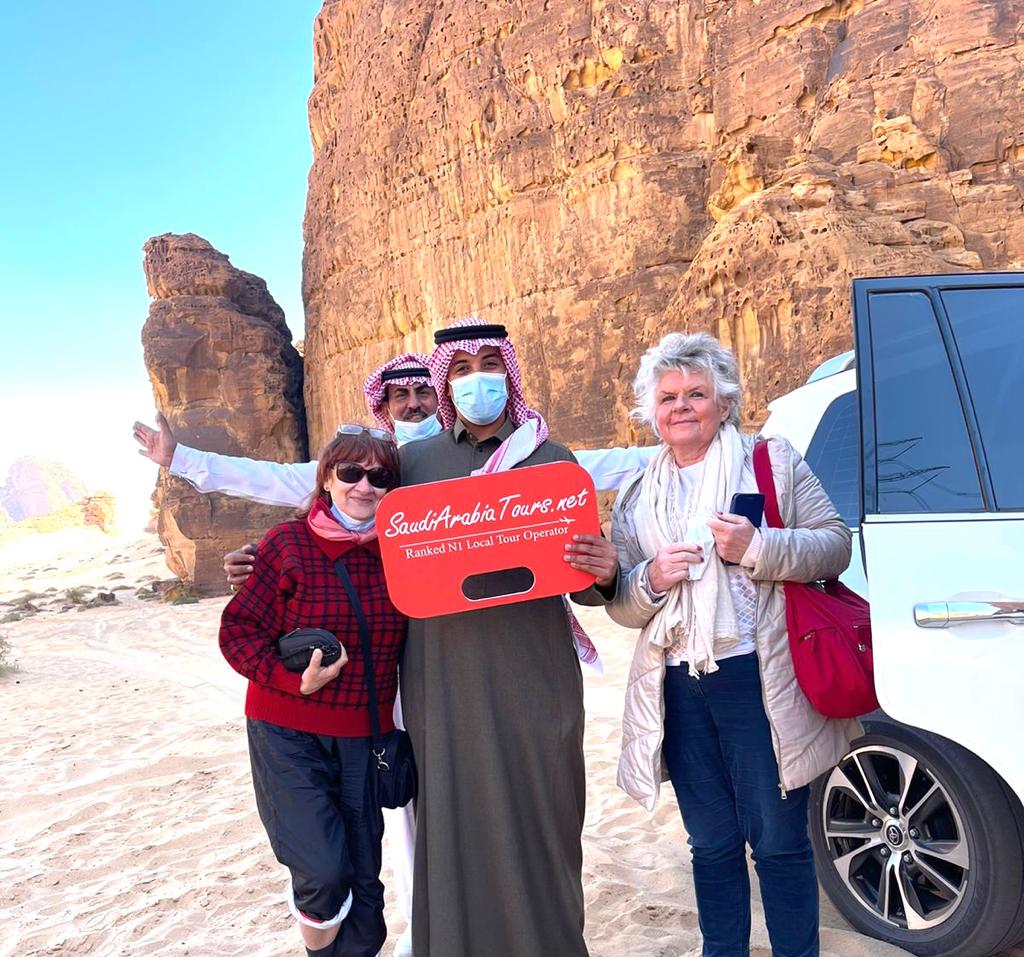
4 Days Riyadh Heritage Tour Package
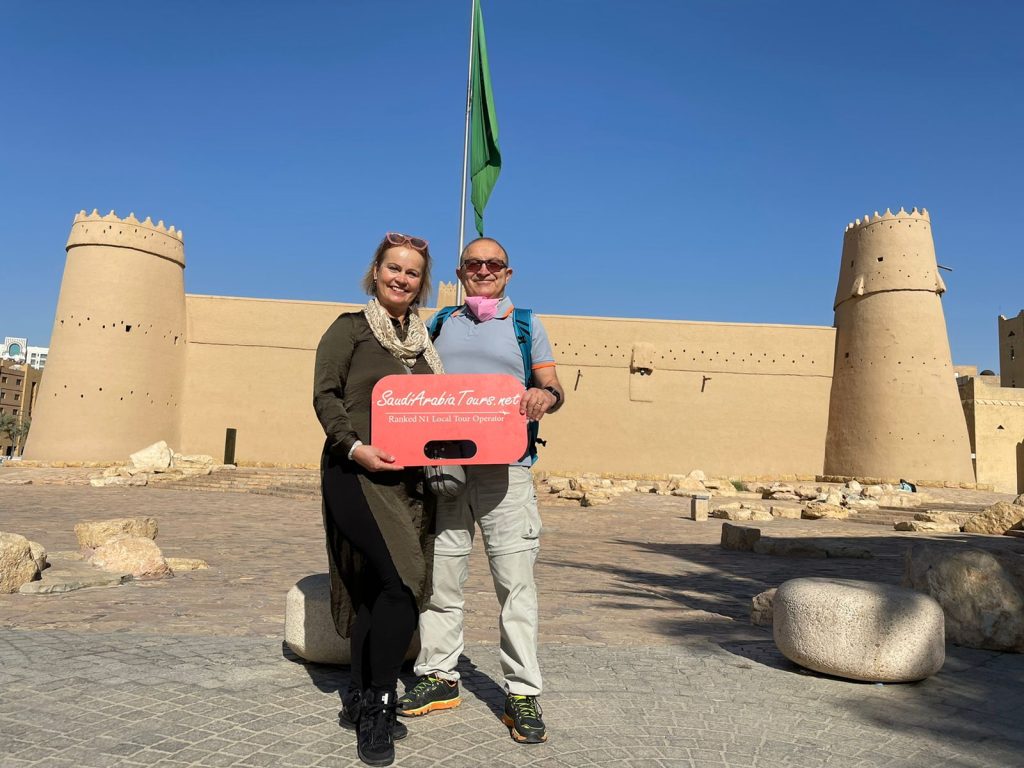
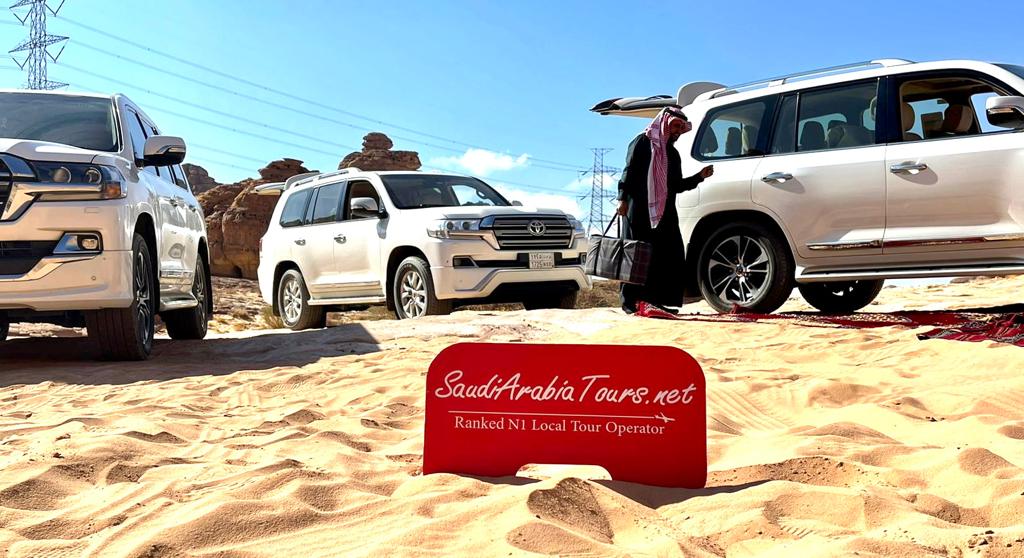
Saudi Arabia Explorer Riyadh, AlUla and Jeddah – 8 Days
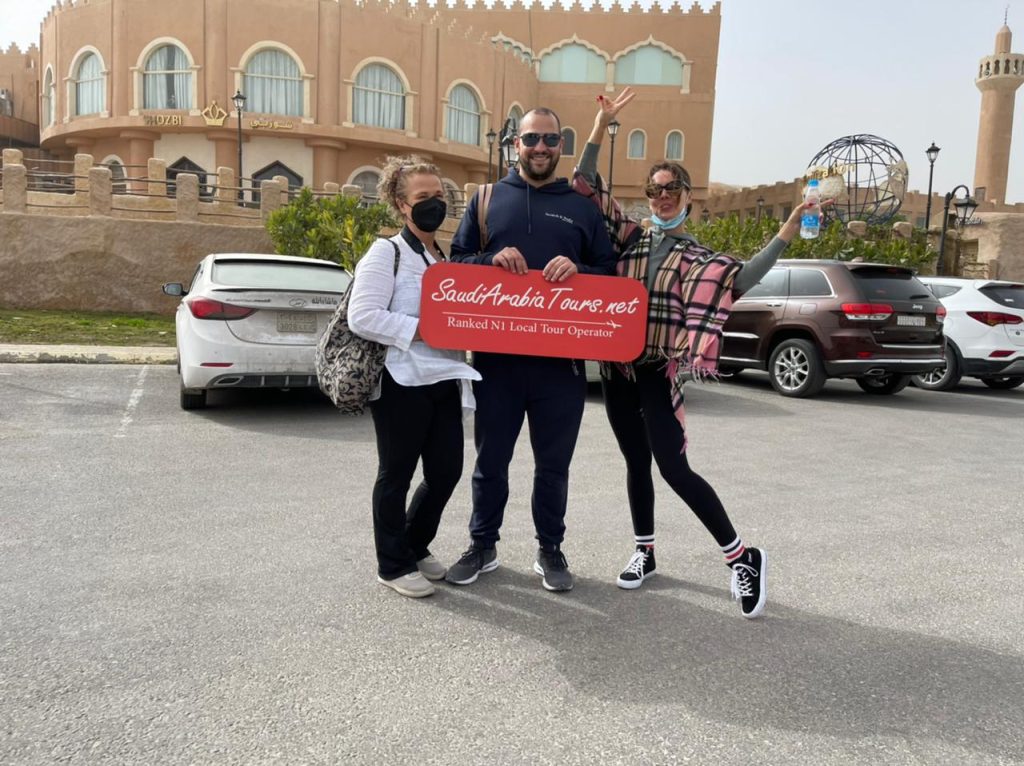
Majestic Tour of Saudi Arabia – 10 Days
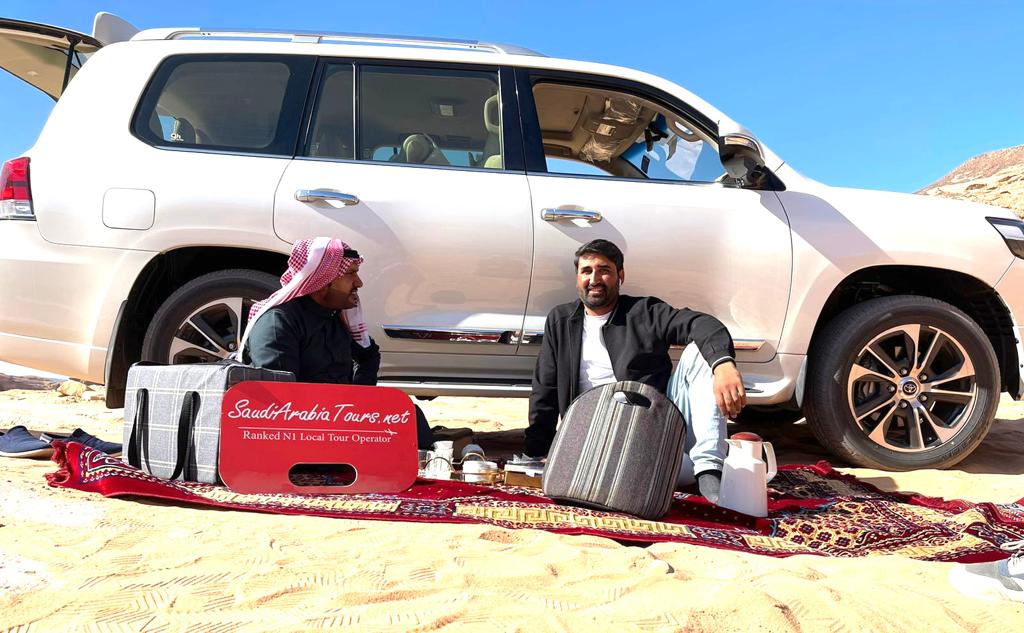
How Good are Saudi Arabia Tours?
Saudi Arabia Tours prides itself on being the best travel agency in Saudi Arabia as proven by our numerous positive reviews.
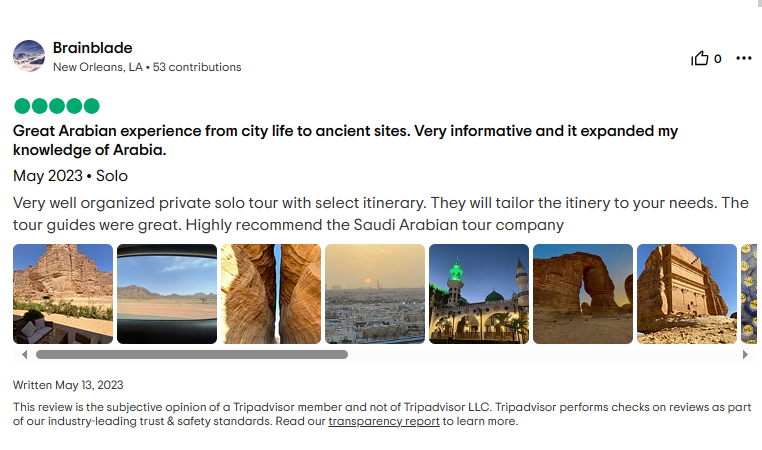
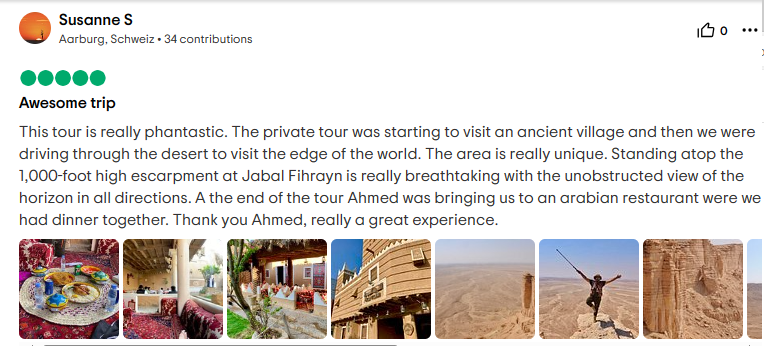
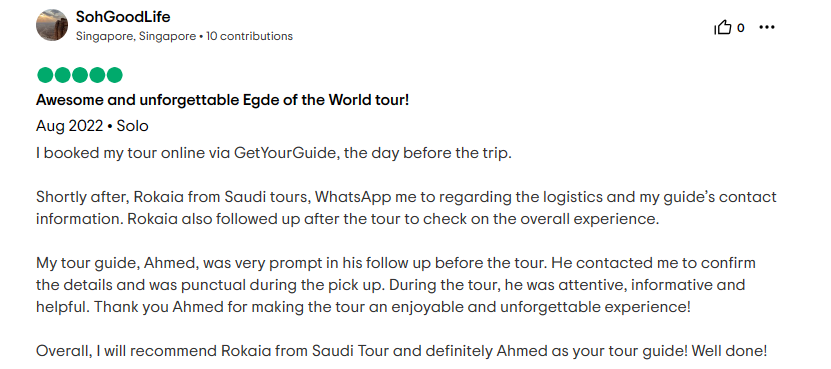
Frequently Asked Questions?
Is Saudi Arabia safe for tourists?
Tourists have been visiting Saudi Arabia and Saudi Arabians have a well-earned reputation for warmth and kindness toward visitors. Saudi Arabia cities are generally very safe, especially in areas where tourists frequent.
How to get a Saudi tourist visa?
Applying for a tourist visa to Saudi Arabia is easy. If you are from one of the 49 eligible countries, you can apply through the eVisa website. Holders of US, UK, or Schengen visas can apply for the visa upon arrival. Saudi Arabia is opening its doors to the world through its new tourist visa. Visitors will have the chance to discover and experience the warm hospitality of the Saudi people, the rich heritage, the vibrant culture, and Saudi Arabia’s diverse and breathtaking landscapes. The visa will be a one-year, multiple-entry visa, allowing tourists to spend up to 90 days in the country.
Are non-Muslims allowed in Saudi?
Non-Muslims can travel to all cities in Saudi Arabia except Medinah and Mekkah, Not allowed to non-Muslims to enter Mecca and Medinah.
Can I wear jeans in Saudi Arabia?
Both men and women are asked to dress modestly in public, avoiding tight-fitting clothing. Women should cover their shoulders and knees in public.
Contact us for more information on:
saudiarabiatours.net@gmail.com
Address: Head Office Olaya St, Riyadh 12213, Saudi Arabia.
If you are booking and taking the tour within 24 hours, or have an urgent request, call us on
Cell/whatsapp : +966558018938 For more info please visit Saudi Arabia Tours
